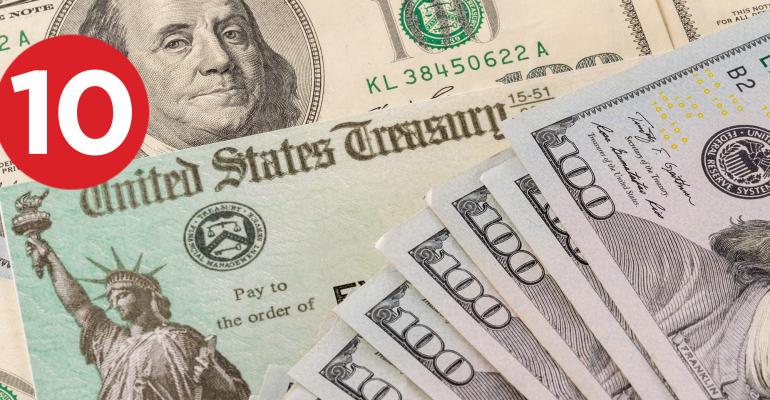- Why restaurants are open and schools are closed “While there remains some debate, schools don’t appear to be major sources of viral spread in this pandemic. Restaurants, bars, and gyms, however — places where adults congregate, often in close quarters and often without masks — do seem to contribute to outbreaks. Indeed, many European countries that have locked down to mitigate their second waves have allowed schools to remain open while such businesses close.” (Vox)
- The importance of the fiscal stimulus “As we have repeatedly emphasized, fiscal stimulus remains vital to support the economy in the short term until we have moved past the pandemic. This proves especially important for consumers, who represent roughly 70% of GDP. Yet, the support that fiscal stimulus has provided consumers is fading and looks set to fall further without the passage of additional funding.” (JLL)
- Amazon’s Online Pharmacy Targets Popular Net Lease Segment “The e-commerce giant announced the launch of a new store, called Amazon Pharmacy, which will allow customers to complete an entire pharmacy transaction on their desktop or mobile device through the Amazon App. The platform will enable customers to add their insurance information, manage prescriptions and choose payment options before checking out. Prime members will receive unlimited, free two-day delivery on orders from Amazon Pharmacy included with their membership.” (GlobeSt.com)
- NYC Public Schools Will Close As City Reaches 3% Threshold Of COVID-19 Cases “The city’s public school buildings are slated to temporarily close Thursday, November 19th, and students will be shifted to full remote learning after the seven-day positivity rate reached 3% Wednesday, the threshold Mayor Bill de Blasio has long said would trigger a systemwide closure. It was not immediately clear how long schools will stay closed.” (Gothamist)
- In California, science guides whether to reopen hair salons — but not always schools “Ten months into the pandemic, California school districts are struggling with whether to reopen classrooms as public health experts warn that the risks of returning students to class might be outweighed by the harms of keeping classrooms closed.” (San Francisco Chronicle)
- New York Hotel Owners to Pay $500 Million to Pandemic-Hit Workers “The ruling represents the largest hotel-employee payout ever awarded in New York City, hotel owners and union representatives said. While the final amount of severance pay depends on a few factors, it is likely to be the biggest on record for any hotel-union group in the country, these people said.” (The Wall Street Journal)
- Mapping the rise of ghost kitchens “But are ghost kitchens really on their way to becoming a mainstream, if not dominant, restaurant channel? And what risks come with the opportunity they promise restaurants? Restaurant Dive aims to answer these questions and more in a six-part article series that explores how much these concepts cost and what it takes to make them profitable, the major brands and independent operators that have launched ghost kitchens during the pandemic and what a more advanced ghost kitchen market would look like in the U.S.” (Restaurant Dive)
- GSEs' 2021 Lending Caps Double Down on Affordable Housing “The Federal Housing Finance Agency has unveiled the lending caps for Fannie Mae and Freddie Mac in 2021, and they are coming with some changes. FHFA has set $70 million in multifamily lending caps for the two housing agencies in 2021, giving them a combined lending power of $140 million; however, at least 50% of the loan originations must be dedicated to affordable housing. The change comes in light of the pandemic, which has only served to deepen the severity of the national housing crisis.” (GlobeSt.com)
- Tenants get class-action status against Kushner in Brooklyn rent case “The ruling could open Kushner up to damages for any rent overcharges — plus interest — for the six named plaintiffs, 46 additional tenants and any others the court finds were charged too much by the company. The court gave Kushner 45 days to provide names and contact information for all previous residents of the building.” (The Real Deal)
- Korean Appetite for U.S. Commercial Real Estate Heats Up During Pandemic “South Koreans invested $1.56 billion, up from $1.24 billion a year earlier, during that time, trailing only Canadian and German investors. A year ago, South Koreans ranked 10th among foreign investors in U.S. real estate, according to Real Capital Analytics.” (The Wall Street Journal)
0 comments
Hide comments

